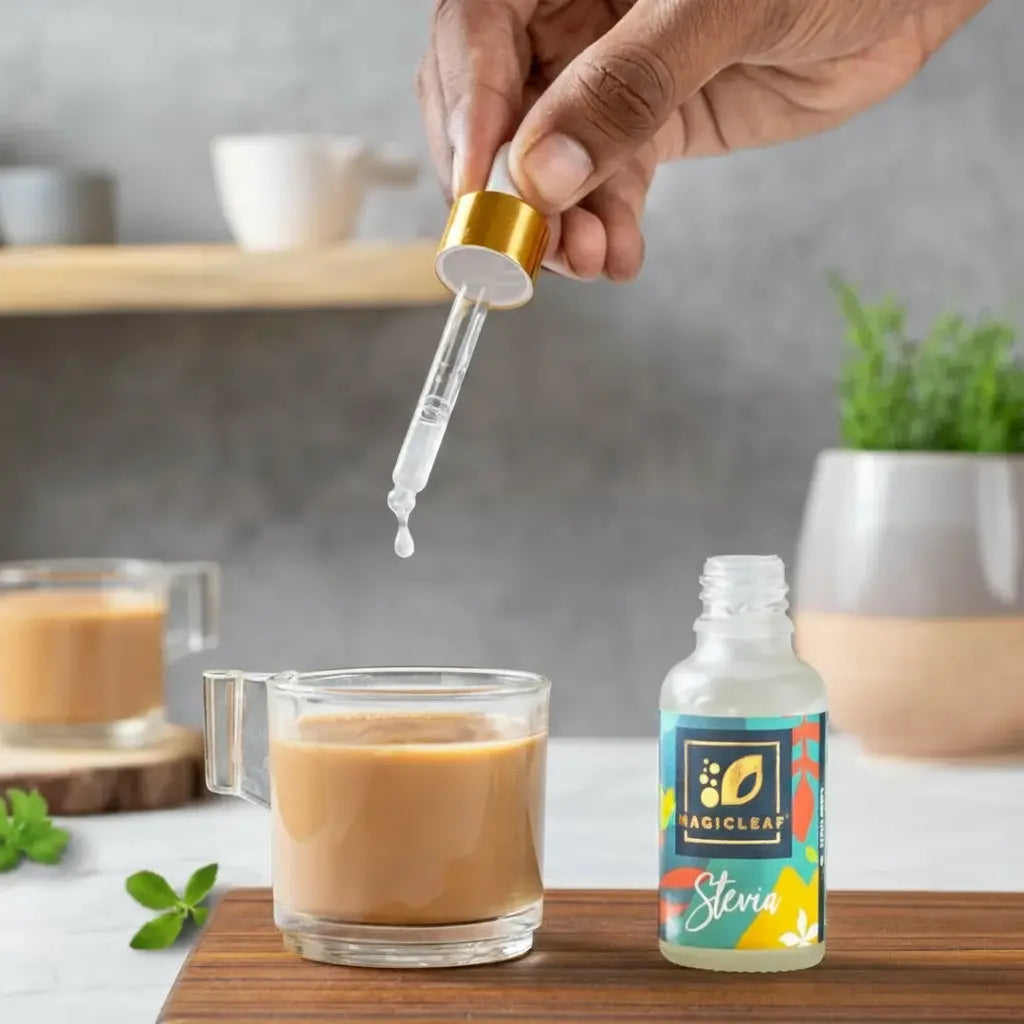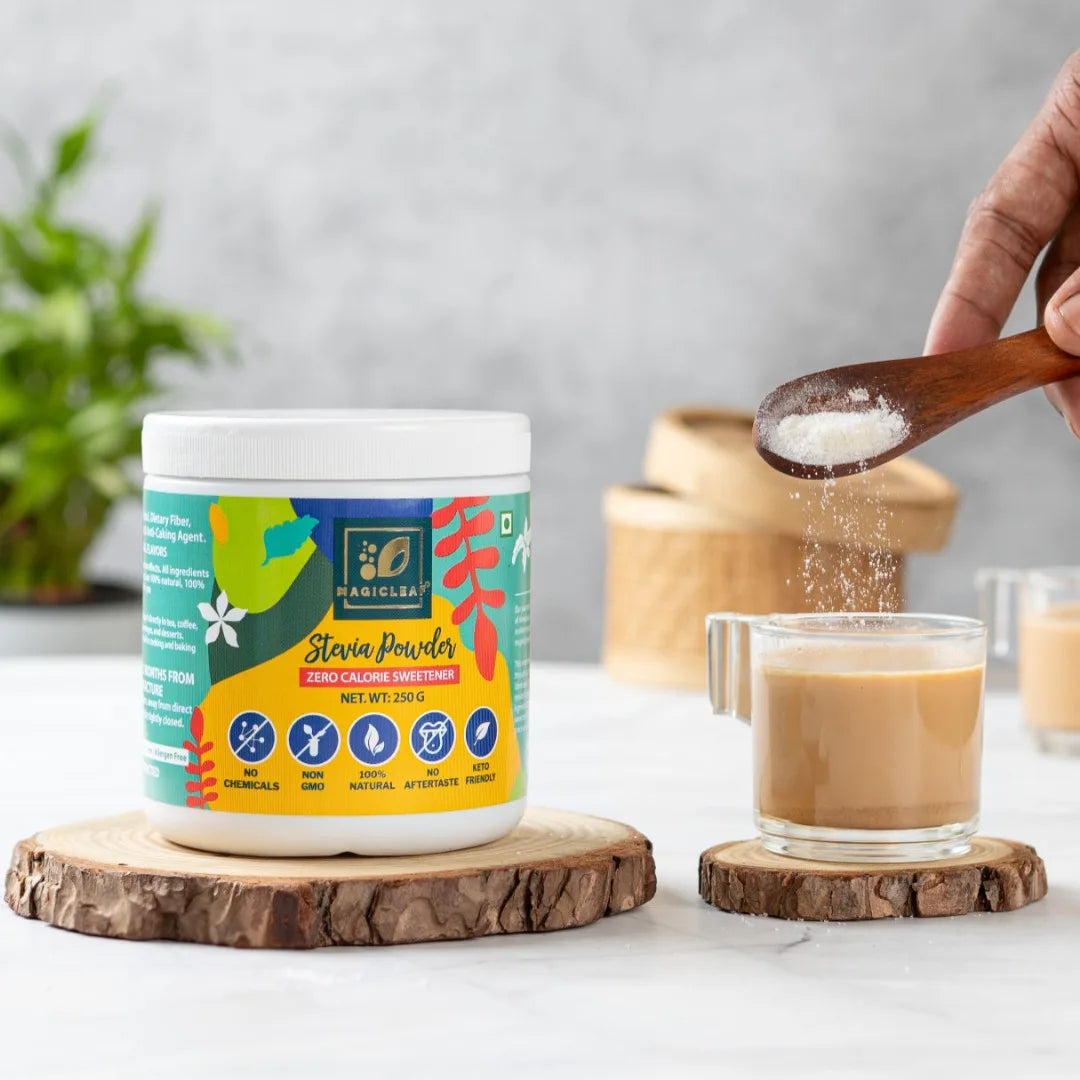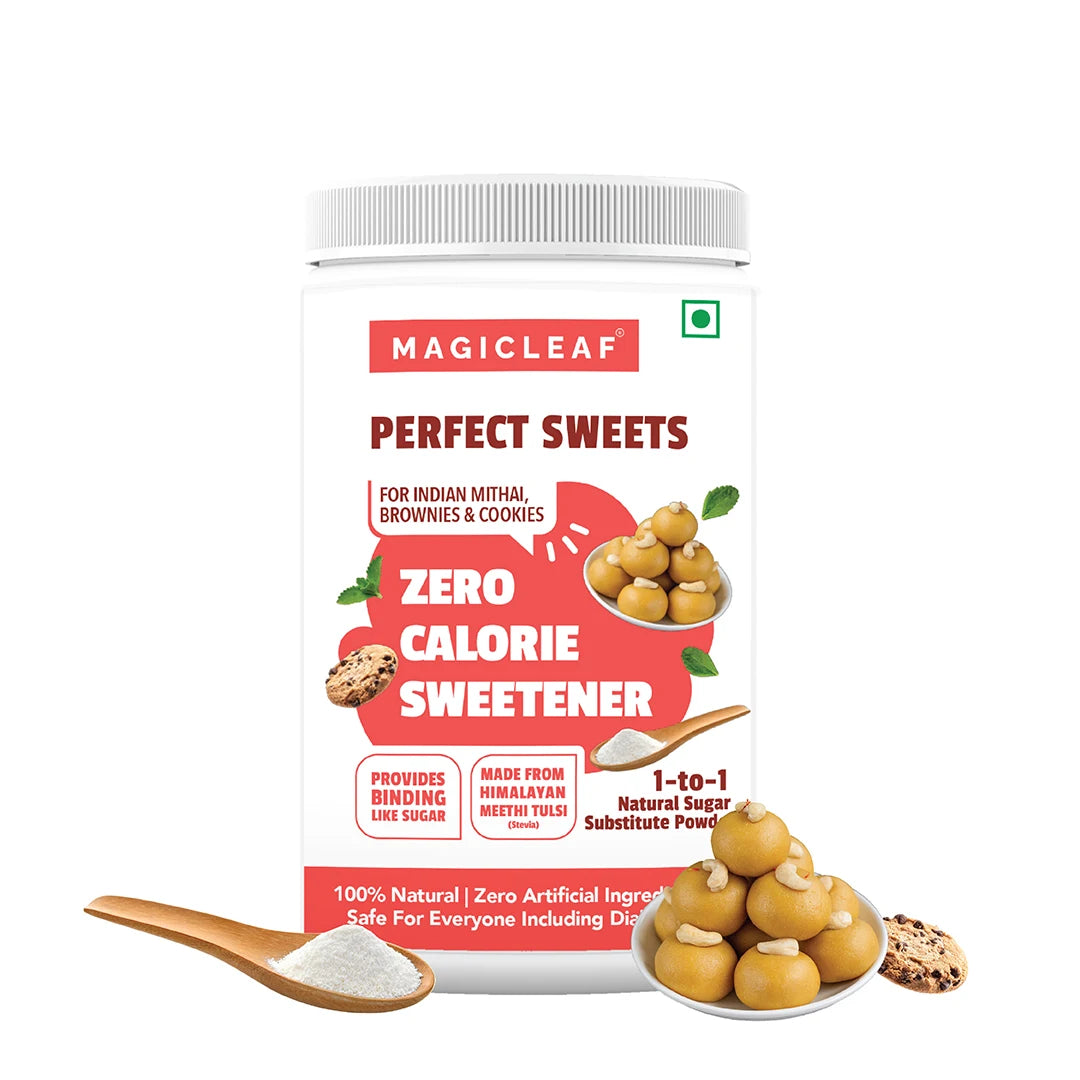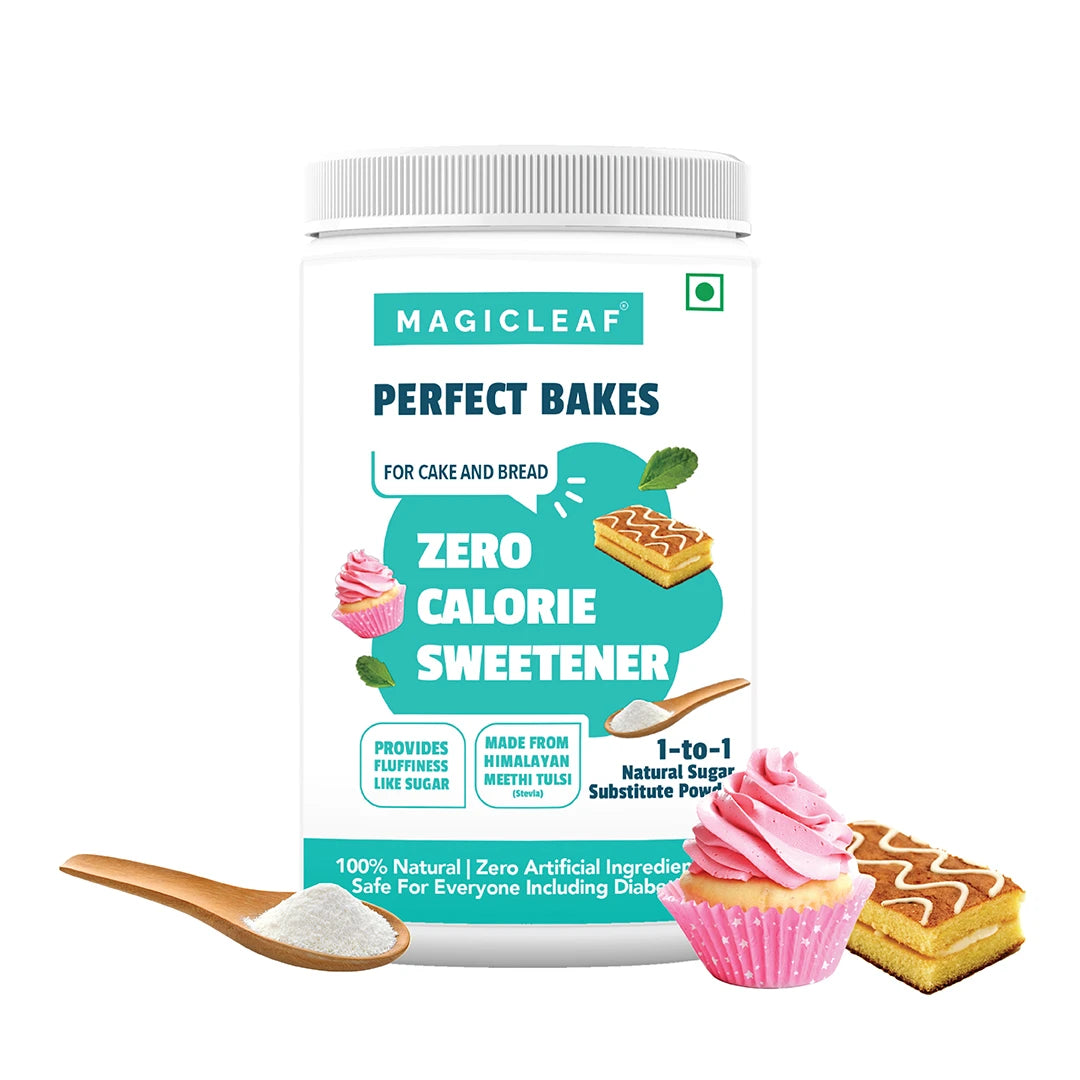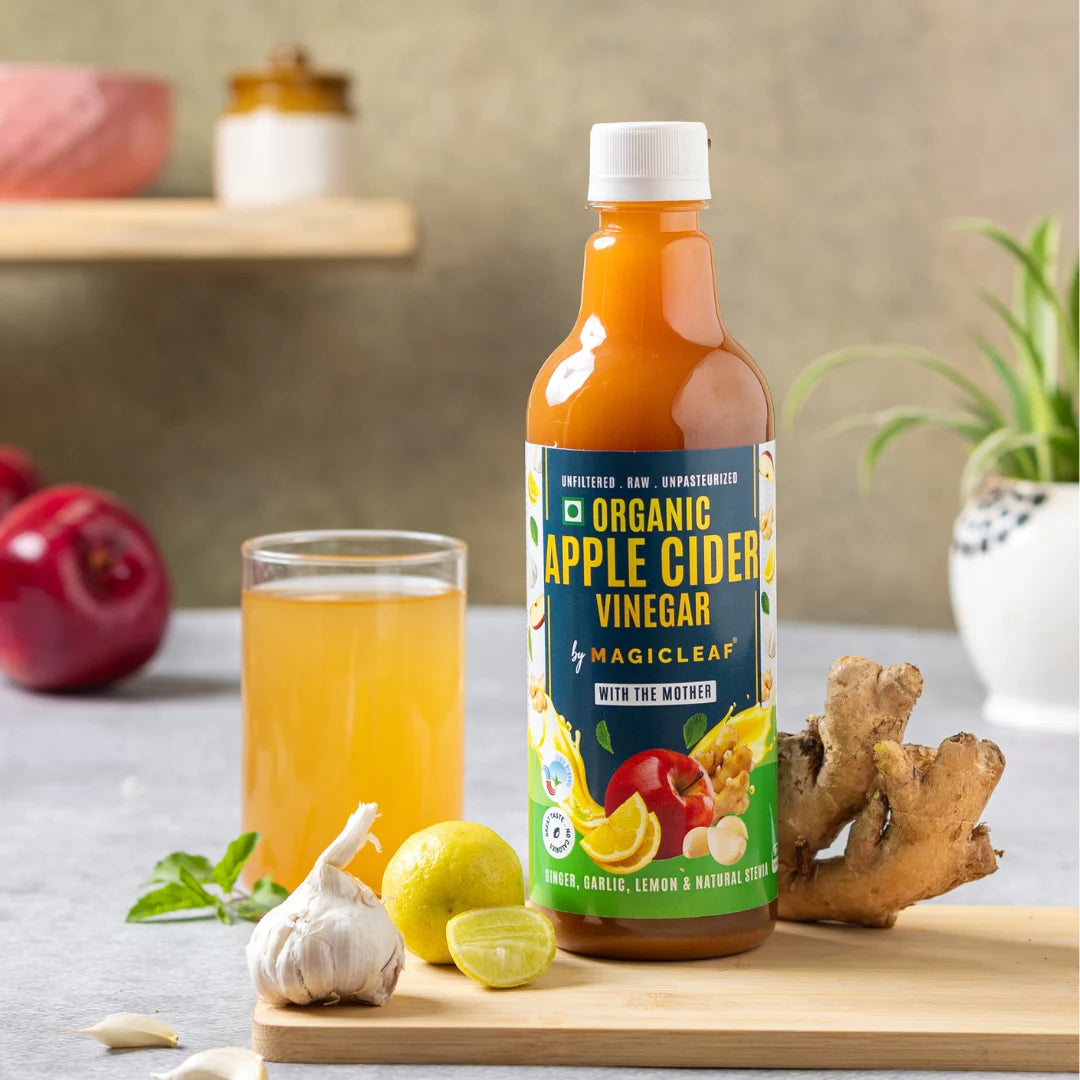| Aspect | Stevia | Other Sugarfree Sweeteners |
|---|---|---|
| Source | Natural sweetener derived from the Stevia rebaudiana plant (मीठी तुलसी) | May contain natural and artificial sweeteners like maltodextrin, dextrose, etc. |
| Sweetness | Much sweeter than sugar, with some extracts being 300 times sweeter | Sweetness may vary based on ingredients, but typically sweeter than sugar |
| Calorie Content | 0 | Varies depending on ingredients; often low calorie or calorie-free options available |
| Tooth Decay | Does not contribute to tooth decay | Typically does not contribute to tooth decay, especially in low or zero-calorie formulations |
| Usage | Available in various forms including powder, liquid, and whole leaf | Used in a variety of products as a sugar substitute, available in various forms such as powder, liquid, and granules |
| Safety | Considered safe with no known adverse effects; approved as a sweetener in many countries | May contain artificial ingredients that have potential health risks, depending on the formulation |
| Regulatory | Approved for use as a food additive by FDA and recognized as safe by various regulatory agencies worldwide including India | Approval status may vary depending on the specific ingredients used |
| Natural | Naturally derived from plants | May contain both natural and artificial ingredients |
| Metabolism | Not metabolized by the body so does not affect adversely in any way. | Varies depending on ingredients, but typically not metabolized |
| Environmental Impact | Generally considered environmentally friendly as it is plant-based and biodegradable | May have an environmental impact depending on the manufacturing process and ingredients used |
Natural Origin: Stevia is derived from the leaves of the Stevia rebaudiana plant, making it a natural sweetener option.
Calorie-Free: Unlike sugar, stevia contains no calories, making it ideal for those looking to reduce calorie intake or manage their weight.
Blood Sugar Impact: Stevia does not raise blood sugar levels, making it suitable for individuals with diabetes or those monitoring their blood sugar.
Minimal Processing: Stevia undergoes minimal processing compared to artificial sweeteners like aspartame or sucralose, enhancing its appeal to those seeking more natural alternatives.
Potential Health Benefits: Research suggests that stevia may possess anti-inflammatory and antioxidant properties, offering potential health benefits beyond its sweetening effects.
Preference for Natural: Many consumers prefer stevia over other sugar-free sweeteners due to its natural origins and perceived safety profile.
Minimal Reported Side Effects: Unlike some artificial sweeteners, stevia has minimal to no reported side effects, further increasing its popularity among health-conscious individuals.
Conclusion:
In the realm of sweeteners, Stevia emerges as a natural and calorie-free alternative sourced from the Stevia rebaudiana plant, boasting sweetness without the calories and potential health benefits such as reduced blood sugar levels. Conversely, other sugar-free sweeteners, while offering sweetness, may incorporate a blend of natural and artificial ingredients, potentially carrying health risks due to chemical processing. While both options provide alternatives to sugar, opting for Stevia aligns with a healthier and environmentally conscious choice, steering clear of potential long-term health hazards associated with artificial additives.


